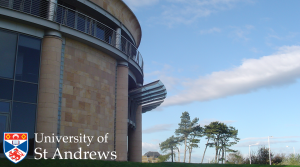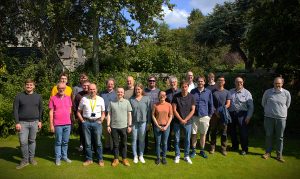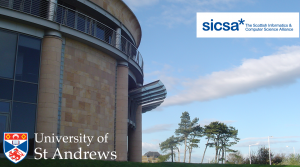
The Higher Education Research Group is happy to announce the workshop on using video on Computer Science education on Aug 7th 2018.
Goals
Participants of this full-day workshop will look at the role of video in education in general, and specifically:
* Discussing opportunities and challenges that are specific for use of video in teaching and learning
* Connecting practitioners to share contextual experiences in using video in education
* Discussing curriculum design implications to include the use of technology
* Generating a collection of good practice “tips” and lessons learned for the benefit of those willing to start using video in learning, assessment and feedback, and seek to disseminate them afterwards in a practitioners’ focused publication, e.g. http://collections.plos.org/ten-simple-rules
* Reconciling practice-based with theoretical approaches to construct a vision of the current state-of-the-art learning technologies to then identifying future challenges.
Format
We are very happy to announce that the Director of Computational Foundry at Swansea University, Alan Dix, will give the keynote. He has worked in human–computer interaction research since the mid 1980s, is the author of one of the major international textbooks on Human-Computer Interaction and author of approximately 500 research publications covering topics from formal methods to creativity. In 2013 he produced an HCI MOOC that is now hosted at InteractionDesign.org and the materials reused for flip class teaching. In the same year he walked 1000 miles round the coast of Wales; the outcomes of which have included a case study of the educational use of the data gathered during the walk in the Open Knowledge Foundation book on “Open Data as Open Educational Resources”. The talk will include the use of fine-grained learning analytics of video and related educational resources.
In addition to the invited talk, the workshop will consist of a set of presentations followed by a world-café activity, producing practical tips in using video in education with a focus on assessment and feedback.
Background
Although video has historically played an important part on teaching and learning, only recently video-making and editing technologies have become accessible in an unprecedented way, allowing students to become proficient video “prosumers” (producers and consumers). Further, there are numerous educational gains to be had through these technologies. This interactive workshop explores how can video be used in practice to leverage skills and foster creativity whilst facilitating knowledge acquisition.
Target Audience
The workshop will involve 24 participants, who have experience or an interest in using video in education. While the central topic is video for assessment, we hope to also appeal to practitioners using video in a wider sense (e.g. in lecture capture, MOOCs, video feedback).
In order to register, contact Adriana at agw5@st-andrews.ac.uk, or visit the Eventbrite page:
https://www.eventbrite.com/e/workshop-on-using-video-in-computer-science-education-tickets-48131928895
Event details
- When: 7th August 2018 10:00 - 16:00
- Where: Gateway Bldg
- Format: Workshop






